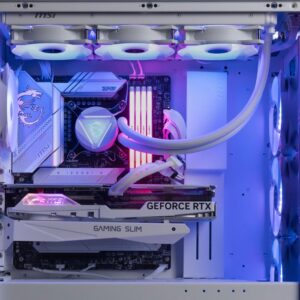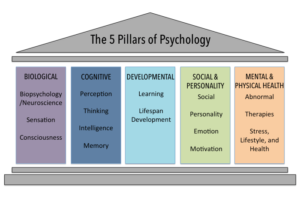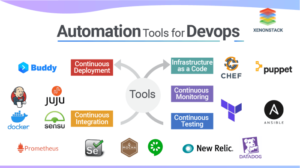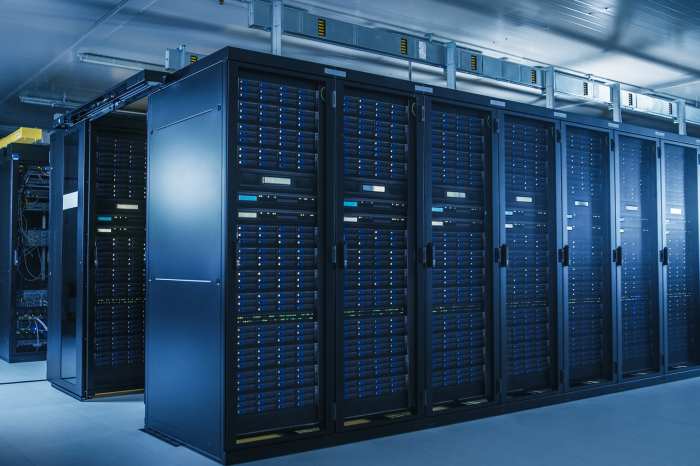
Server hardware solutions play a pivotal role in driving the efficiency and productivity of businesses today. From ensuring seamless data communication to supporting robust web hosting services, the right server hardware can significantly influence operational success. In this overview, we will explore the diverse types of server hardware available, the latest trends shaping the industry, and how these technologies interconnect with web hosting and data security.
The importance of server hardware cannot be overstated, as it forms the backbone of digital infrastructure. Understanding the different solutions available and their functionalities will empower businesses to make informed decisions that enhance their technological framework.
Server Hardware Solutions Overview

In today’s digital landscape, server hardware plays a crucial role in enabling efficient business operations. The right server hardware solutions facilitate data storage, processing, and management, impacting overall productivity and performance. Businesses of all sizes rely on robust and scalable hardware setups to meet their growing needs and improve their competitive edge.The various types of server hardware solutions available cater to diverse operational requirements.
These include rack servers, blade servers, tower servers, and microservers, each designed with distinct capabilities suited for different environments. Understanding these options is essential for businesses to make informed decisions when investing in infrastructure.
Types of Server Hardware Solutions
Different server hardware types serve unique purposes and organizations should evaluate their needs to choose the appropriate solution. The primary types include:
- Rack Servers: Ideal for data centers, these servers are compact and designed to be mounted in a rack, saving space while allowing for powerful performance.
- Blade Servers: Comprising multiple server blades in a single chassis, they offer high-density computing and efficient power usage, making them suitable for enterprises with heavy workloads.
- Tower Servers: Resembling traditional desktop PCs, these servers are often used by small to medium-sized businesses that require simple setup and management.
- Microservers: These are lightweight and energy-efficient, perfect for handling specific tasks such as web hosting or cloud applications in smaller environments.
Each type of server hardware has its advantages and is tailored to meet specific requirements in terms of performance, scalability, and cost-effectiveness.
Latest Trends in Server Hardware Technology
Server hardware technology is continuously evolving, driven by advancements in processing power, energy efficiency, and cloud computing. Notable trends include:
- Adoption of AI and Machine Learning: Modern servers increasingly integrate AI capabilities for enhanced performance and data analytics, streamlining operations and decision-making processes.
- Hyper-Converged Infrastructure (HCI): This technology combines storage, computing, and networking into a single system, simplifying management and improving scalability for businesses.
- Edge Computing: With the growth of IoT devices, edge computing enables processing data closer to the source, reducing latency and bandwidth usage, which is crucial for real-time applications.
- Energy-Efficient Designs: The shift towards sustainability has led to the development of hardware that consumes less power, reducing operational costs and the environmental impact.
These trends reflect the ongoing innovation in server hardware, aligning with the needs of modern businesses that demand flexibility, efficiency, and reliability. Keeping up with these developments is essential for organizations looking to stay competitive in an increasingly digital world.
Web Hosting and Domain Names
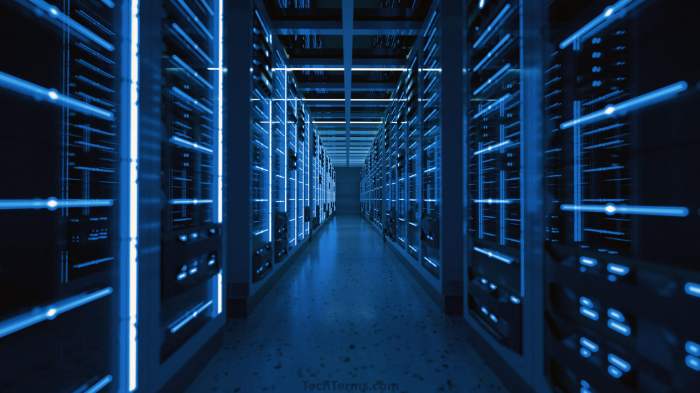
Web hosting and domain names are essential components in the digital landscape, enabling the existence and accessibility of websites. The relationship between server hardware and web hosting services is fundamental to how websites operate and are accessed by users around the globe. Understanding this relationship helps businesses and individuals make informed decisions about their online presence.The server hardware plays a crucial role in web hosting services, as it provides the physical infrastructure needed to store, manage, and deliver website content.
When users access a website, their requests are processed by servers that host the data. The performance, reliability, and capacity of server hardware directly impact the quality of web hosting services.
Dedicated Servers vs Shared Hosting Solutions
When choosing a hosting solution, it’s vital to understand the differences between dedicated servers and shared hosting. Both options serve different needs and come with their own sets of advantages and disadvantages.Dedicated servers provide an entire server exclusively for one client. This option is ideal for high-traffic websites or applications that require significant resources. Users can customize hardware configurations to suit specific needs, ensuring optimal performance and security.
In contrast, shared hosting involves multiple users sharing the resources of a single server. This is a cost-effective solution suitable for smaller websites or startups with limited budgets. However, since resources are shared, performance can be affected by other websites on the same server. Here is a comparison of key features:
| Feature | Dedicated Servers | Shared Hosting |
|---|---|---|
| Performance | High; dedicated resources | Variable; shared resources |
| Customizability | Full control over software and hardware | Limited; pre-configured settings |
| Security | Higher; isolated environment | Lower; potential vulnerabilities from other sites |
| Cost | Higher; premium pricing | Lower; budget-friendly |
Dedicated servers offer optimal performance and security for demanding applications, while shared hosting is ideal for budget-conscious users.
Domain Names and Server Hardware Interaction
Domain names serve as the address for websites on the internet, enabling users to easily locate and access them. The interaction between domain names and server hardware is crucial for maintaining website accessibility. When a user enters a domain name into their browser, a Domain Name System (DNS) translates that name into an IP address, which points to the server hosting the website.The quality of server hardware influences not only the speed and reliability of the website but also the efficiency of DNS resolution.
A well-configured and robust server can handle higher traffic loads and provide faster responses, resulting in a better user experience. Moreover, having reliable server hardware reduces downtime, ensuring that the domain name remains accessible to users at all times. In summary, choosing the right server hardware is essential for effective web hosting services and proper interaction with domain names, which ultimately enhances the accessibility and performance of websites.
Data Communication and Security
In an age where data breaches are rampant and cybersecurity threats loom large, the role of server hardware in ensuring secure data transmission cannot be overstated. Server hardware serves as the backbone for data communication, managing the flow of information while safeguarding against potential vulnerabilities. This section delves into how server hardware aids in secure data transmission and explores various methods to enhance data communication.
Role of Server Hardware in Secure Data Transmission
The primary function of server hardware in secure data transmission is to facilitate reliable and encrypted communication channels. By utilizing dedicated hardware components, such as Network Interface Cards (NICs) and Secure Sockets Layer (SSL) processors, servers can encrypt data both in transit and at rest. Here are some crucial aspects of this role:
- Encryption Capabilities: Server hardware can support various encryption protocols like SSL/TLS, ensuring that sensitive data is unreadable during transmission.
- Firewall Integration: Many server systems come with built-in firewalls that add an additional layer of security by filtering out malicious traffic.
- Load Balancing: Advanced server setups utilize load balancers to distribute traffic evenly, minimizing the risk of overload and potential denial-of-service attacks.
Methods for Enhancing Data Communication Using Server Hardware Solutions
Enhancing data communication involves implementing advanced server hardware solutions that streamline the transmission process while bolstering security. The following methods are crucial for achieving this enhancement:
- Upgrading Network Interfaces: High-speed NICs allow for faster data transfer rates, reducing latency and improving overall communication efficiency.
- Virtualization Technology: Virtual servers can optimize resource allocation and enhance performance, providing secure environments for data processing without compromising speed.
- Implementing Redundancy: Utilizing redundant power supplies and network connections ensures uninterrupted service and data availability even during hardware failures.
Framework for Assessing Server Hardware Security Vulnerabilities
To maintain a robust security posture, organizations must regularly assess their server hardware for vulnerabilities. A structured framework can guide this assessment process effectively:
- Inventory of Hardware: Maintain a comprehensive list of all server components to identify potential weaknesses in the hardware ecosystem.
- Regular Software Updates: Ensure that firmware and software are updated regularly to protect against known vulnerabilities.
- Access Control Measures: Implement strict user access controls and authentication policies to limit exposure to unauthorized users.
- Penetration Testing: Conduct regular penetration tests to identify and address any exploitable vulnerabilities in the server hardware.
“The strength of your data security often lies in the robustness of your server hardware.”
Through these strategies, server hardware can significantly contribute to secure data communication, safeguarding vital information against emerging threats while ensuring efficient transmission.
Last Point
In conclusion, server hardware solutions are not just about physical components; they are integral to the seamless operation of modern businesses. Recognizing the nuances of dedicated servers versus shared hosting, as well as the security measures necessary to protect data, can provide companies with a competitive edge. As technology continues to evolve, staying updated with the latest trends will ensure that businesses are well-equipped to meet the challenges of tomorrow.
Quick FAQs
What are the main types of server hardware solutions?
The main types include dedicated servers, virtual private servers (VPS), cloud servers, and shared hosting solutions, each catering to different business needs.
How does server hardware impact website performance?
High-quality server hardware improves website load times, enhances uptime, and supports higher traffic volumes, leading to better user experiences.
What factors should businesses consider when choosing server hardware?
Businesses should consider performance, scalability, reliability, security, and budget when selecting server hardware solutions.
How can server hardware enhance data security?
Server hardware can enhance data security through features like firewalls, encryption, and secure access controls, protecting sensitive information from breaches.
What are the latest trends in server hardware technology?
Trends include the rise of cloud computing, the use of artificial intelligence for efficiency, and advancements in energy-efficient hardware.
